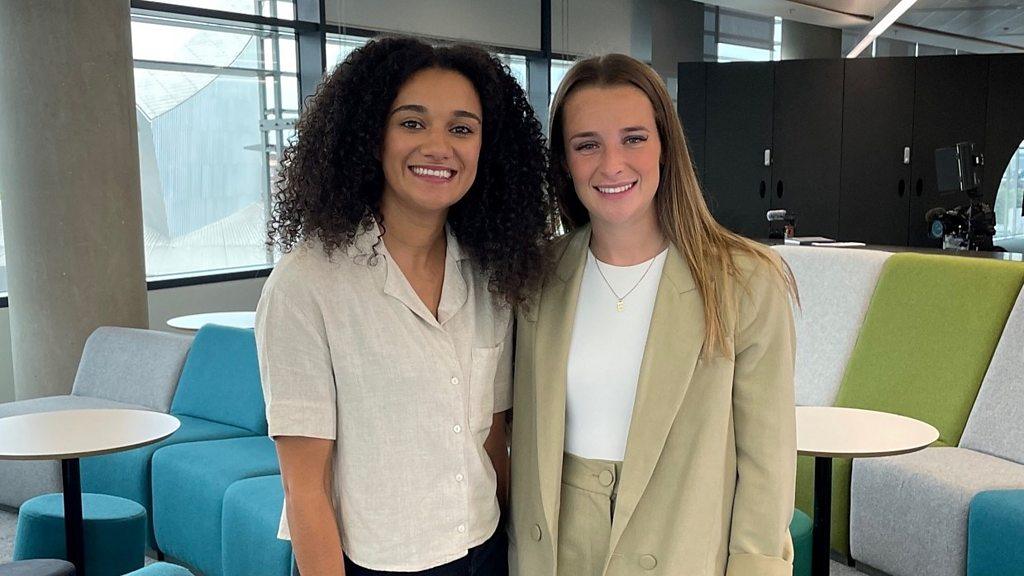Ella Toone: 'Lionesses all had ambition to grow the game when we started'
- Published
- comments
'Ella Toone: 'All we want to do is be role models to boys and girls'
Ella Toone says the Lionesses' impact on women's football has been "unbelievable", but adds there's still more to be done.
Data gathered by the BBC shows that girls' football at every age level has increased in England over the last seven years.
The largest increase in female football teams was in 2022-23 - the season after the Lionesses won Euro 2022 - when almost 1,500 new teams registered.
Manchester United forward Toone, who scored in that Euro final, told the BBC "to see where it [women's football] was and where it's got to now is unbelievable and it's nice to be a part of that journey."
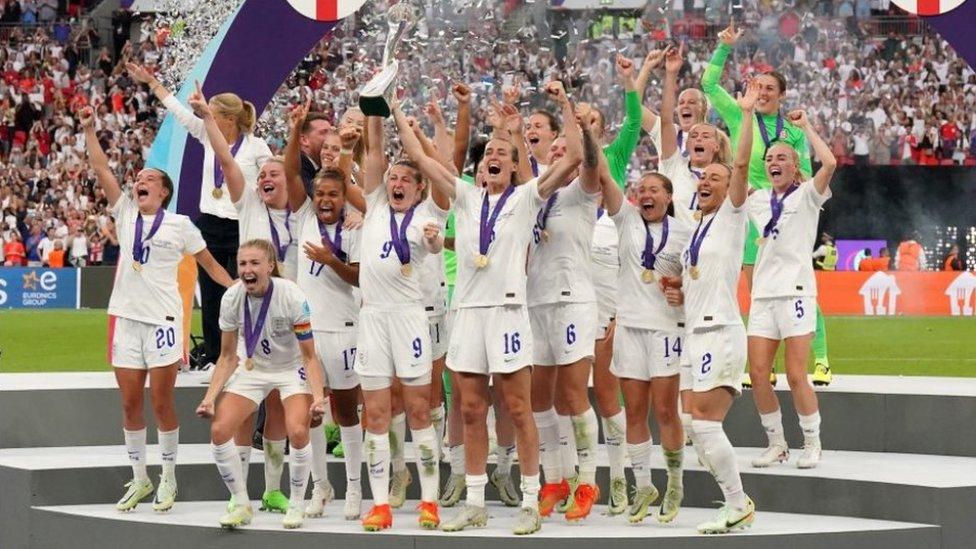
The biggest boost to female football team numbers came after the Lionesses won the Euro 2022 tournament
In Lancashire, which has the largest county Football Association in England, the number of registered teams under the age of 16 (U7s- U16s) has gone from 312 in 2016-17 to 741 in 2023-24 which is a 138% increase.
Fourteen-year-old Keira plays for Morecambe Girls FC junior team in Lancashire, and had been with the club "since I was very little - I think six".
"When I found out about the girls' football team, I just felt like it was more people like me, and I would be with people who would be doing the same thing as me," she said.
Keira, explaining how the Lionesses have changed the game for young female footballers, said they showed "girls can play football too".
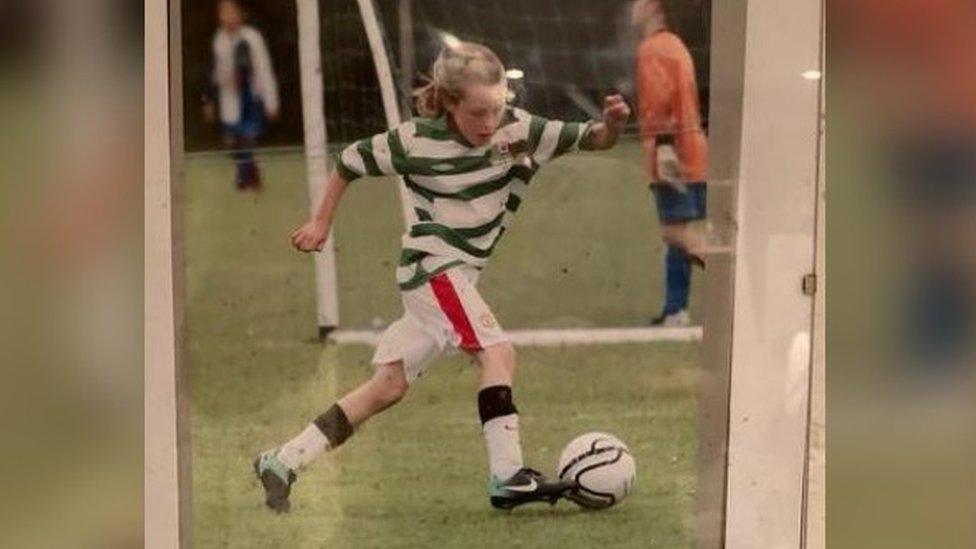
Ella Toone played when she was younger for Astley and Tyldesley FC, which she said she was lucky to have "right on her doorstep"
Remembering her own experiences of football growing up, Ella Toone says she felt lucky to have had a girls' team on her doorstep while she was young.
As a child, she first played for Astley and Tyldesley FC girls' youth team before joining Manchester United's academy.
But she added that: "A lot of the team mates that I've had, had to play with boys for a large amount of their career."
"Growing up, there wasn't women's football on the telly - so I didn't have a female role model to look up to."
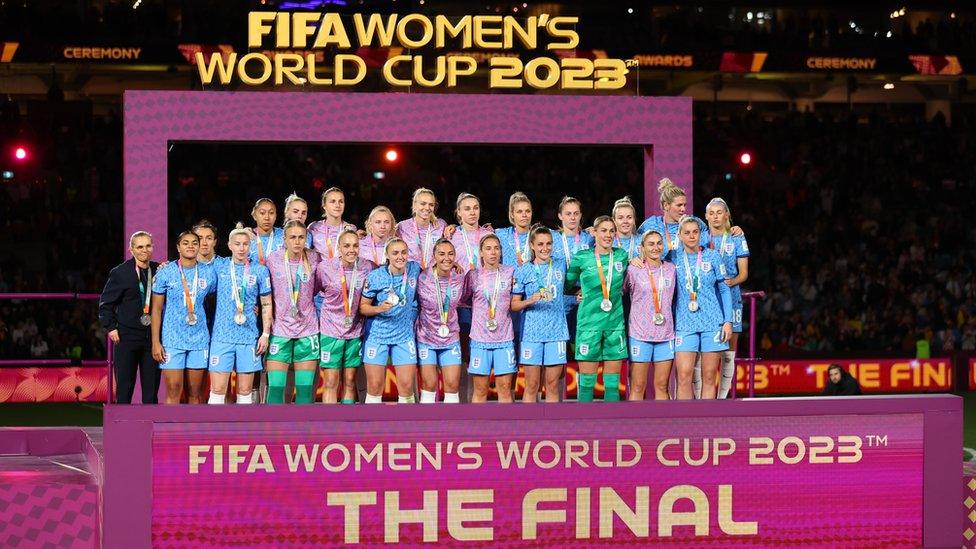
England players pose with their runners up medals at the Women's World Cup final
Last year the midfielder reached the Women's World Cup final with the Lionesses. At its peak, 14.4 million people watched the match, something she thinks had a big impact.
"Now you see the Lionesses are all over the telly - our WSL [Women's Super League] games are on the telly as well - and it's nice now for girls to look up and have female role models."
"We've got to keep pushing it, we've got to strive for an equal access to football."
The FA (Football Association) says it will continue working to make the game more accessible.
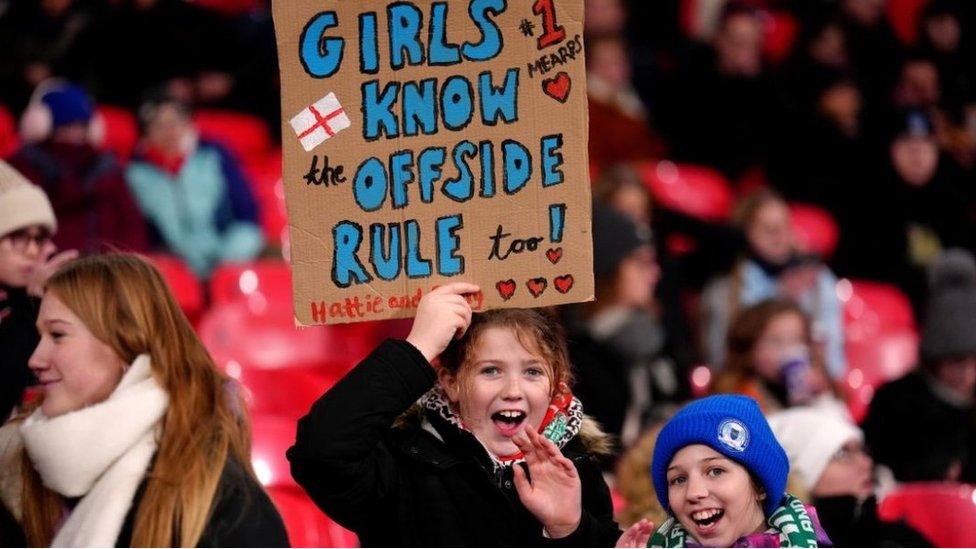
Toone said it was "nice now for girls to look up and have female role models"
Despite this rise in popularity for professional women's football, only a third of WSL clubs have female managers. Outgoing Chelsea manager Emma Hayes recently told the BBC that a lack of female coaches in English football is "a massive issue" and urged the game to "come up with more creative ways" to tackle it.
Baroness Sue Campbell, the FA's director of women's football, said the growth "has been spearheaded by our trailblazing Lionesses whose success in the home Euros gave us an unprecedented chance to change the future of the game forever".
She added: "As we look ahead to the next seven years and beyond, the priority is to make the game accessible to all women and girls, so that no matter their background or circumstance, all can access the benefits of football and the opportunities it can bring."
- Published8 December 2023
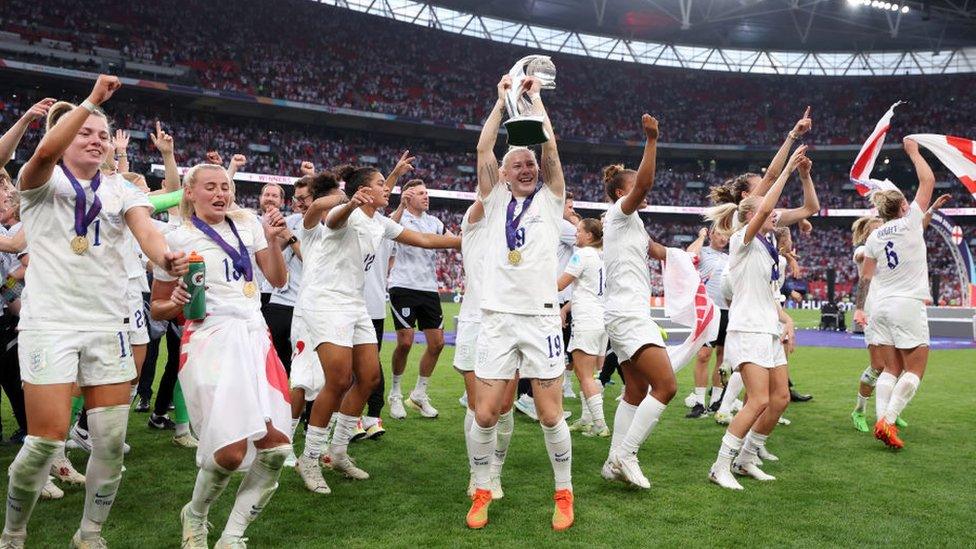
- Published31 August 2023
